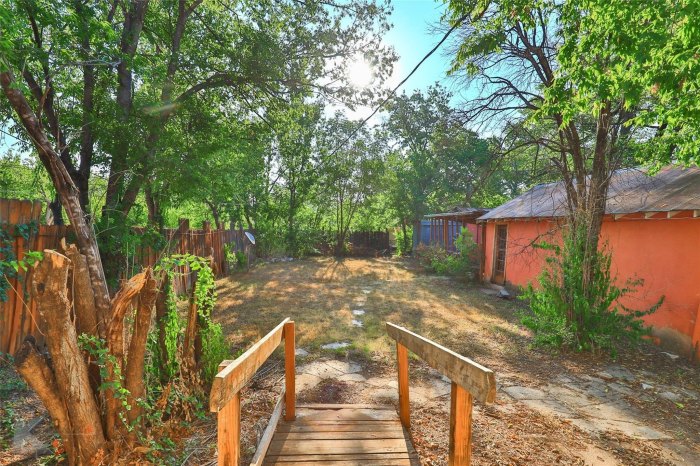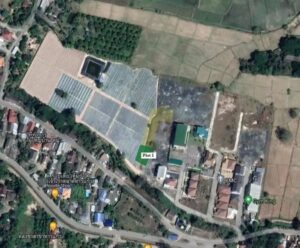Cheap real estate in Texas refers to properties that are priced significantly lower than the state’s average market value. This affordability is often due to various factors, including economic conditions, geographical location, and the overall demand for housing. Texas, known for its sprawling landscapes and diverse cities, offers numerous opportunities for buyers looking to invest in lower-cost properties.
Several factors contribute to the affordability of real estate in Texas. The state has a lower cost of living compared to many other regions in the United States, coupled with a robust economy that consistently attracts residents. Additionally, areas outside major metropolitan hubs often feature lower property prices, making it easier for prospective homeowners and investors to find bargains. Regions such as West Texas, rural East Texas, and certain parts of North Texas are particularly known for having cheap real estate options.
Types of Affordable Properties
When exploring the landscape of affordable properties in Texas, buyers can find a variety of options that cater to different needs and preferences. Understanding the types of properties available is essential for making informed investment decisions.
- Single-Family Homes: These standalone houses are popular among families and investors. They typically offer more space and privacy, making them an attractive option for long-term living or rental income.
- Condos: Condominium units are often more affordable than single-family homes and come with shared amenities like pools and gyms. They appeal to buyers looking for lower maintenance options.
- Land Lots: Purchasing land can be a strategic investment. Buyers often consider land lots for future development or as a long-term hold, which can appreciate over time.
In terms of price, single-family homes can range widely depending on location, while condos generally have lower entry points due to shared ownership. Land lots often present the lowest initial investment but require additional funds for development.
Benefits of Investing in Cheap Real Estate, CHEAP REAL ESTATE IN TEXAS FOR SALE
Investing in cheap real estate offers numerous advantages that can lead to significant financial gains. Affordability allows buyers to enter the market without overwhelming financial burdens, which is particularly beneficial for first-time investors.
The potential return on investment (ROI) for affordable properties can be remarkable. With the right location and property management, investors often see appreciation in property value over time. Notable examples include investors who purchased properties in emerging neighborhoods, leading to substantial gains as those areas became more desirable.
Financing Options for Buyers
Various financing methods are available for those aiming to purchase cheap properties in Texas. Buyers can explore traditional mortgages, FHA loans, and even VA loans for eligible veterans. Understanding these options is crucial for securing the best financing solutions.
To secure a mortgage for affordable real estate, it’s vital to maintain a good credit score and gather necessary documentation ahead of time. Additionally, government programs exist to aid low-income homebuyers, providing grants or subsidized loans that make homeownership more accessible.
Tips for Finding Cheap Real Estate
Locating cheap real estate listings requires strategic approaches. Online platforms such as Zillow or Realtor.com can be useful for initial searches, but diversifying methods can yield better results.
Networking with local real estate agents can provide insider knowledge about upcoming listings that might not be advertised widely. These professionals often have insights into areas experiencing growth or decline, which can influence property values.
A checklist for evaluating potential properties should include:
- Property condition and necessary repairs.
- Neighborhood safety and amenities.
- Historical price trends in the area.
Market Trends in Texas Real Estate
Current market trends indicate a steady increase in demand for affordable housing in Texas, driven by a growing population and an influx of new residents. As cities expand, the competition for low-cost properties intensifies, often leading to price increases.
Predictions for future property values suggest that regions currently offering cheap real estate will continue to see appreciation. Economic factors, such as job growth and infrastructure development, play a crucial role in influencing these trends.
Challenges of Buying Cheap Real Estate
While purchasing affordable properties presents numerous opportunities, it is not without challenges. Common issues include property condition concerns, hidden costs, and potential zoning restrictions.
To navigate these challenges, buyers should conduct thorough inspections and due diligence. Understanding the legal implications and potential risks associated with low-cost investments can mitigate future headaches.
Success Stories and Case Studies
Numerous case studies illustrate successful cheap real estate transactions in Texas. Investors who purchased properties in up-and-coming neighborhoods often share stories of significant appreciation in value, leading to lucrative resale opportunities.
Testimonials from buyers highlight their experiences of transforming affordable properties into desirable homes or rental units, demonstrating the potential for both financial and personal satisfaction.
Legal Considerations when Buying Real Estate
Navigating the legal landscape of purchasing cheap real estate requires familiarity with various steps. Buyers must understand property taxes, closing costs, and the importance of conducting title searches.
Title insurance protects buyers against future claims, making it a critical consideration in real estate transactions. Being informed about these legal aspects helps ensure a smoother buying experience.
Future of Cheap Real Estate in Texas
The future of affordable housing in Texas appears promising, with ongoing developments aimed at increasing availability. As urban areas expand, the demand for affordable options is likely to grow.
Changing demographics also influence the market, as younger generations seek affordable living arrangements. The increasing focus on sustainable housing solutions may further shape the landscape of affordable real estate in the coming years.




